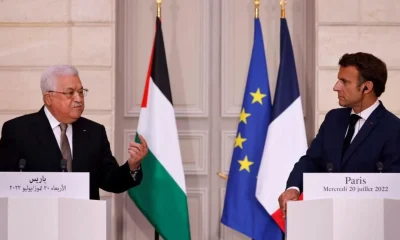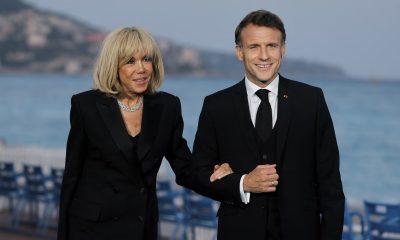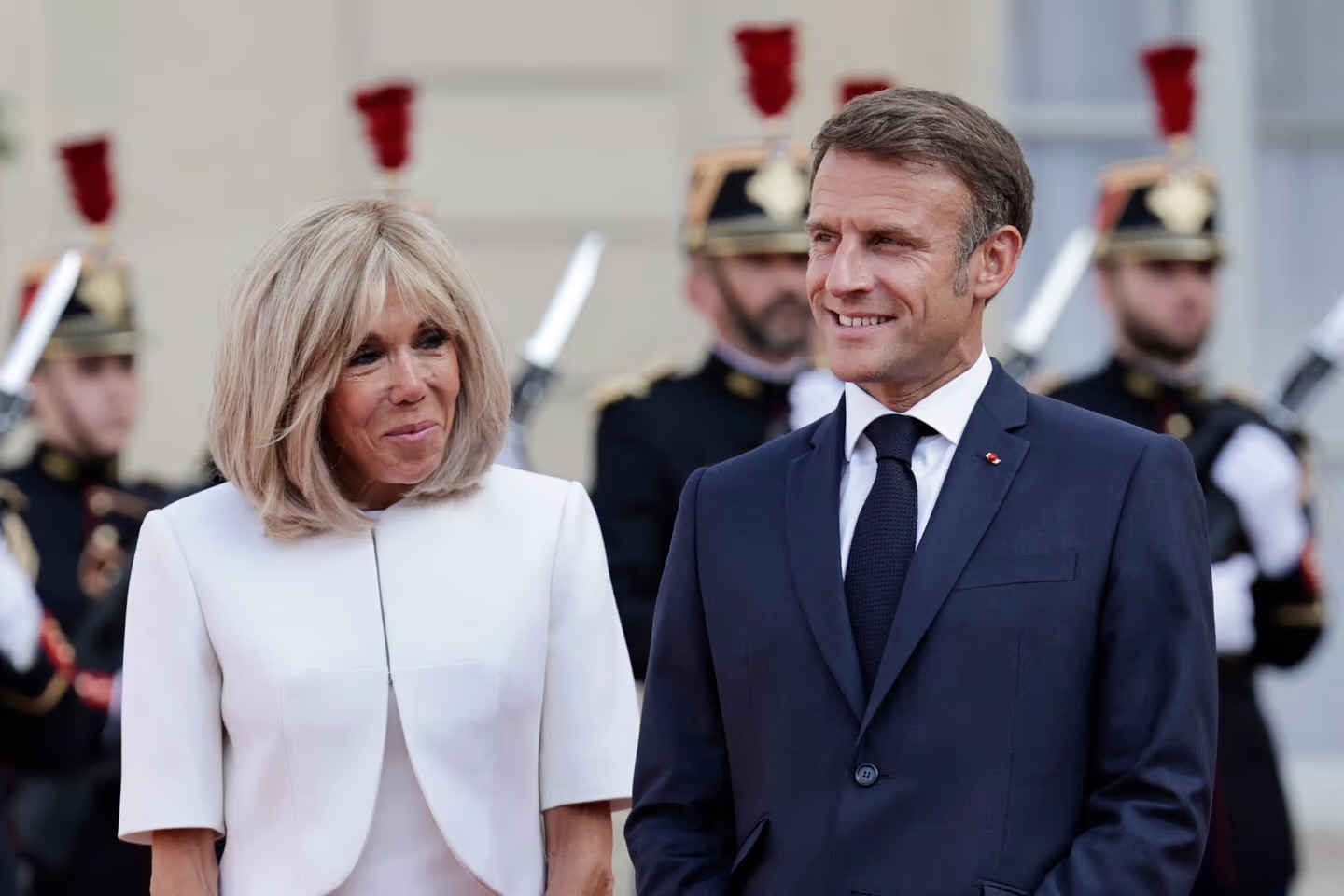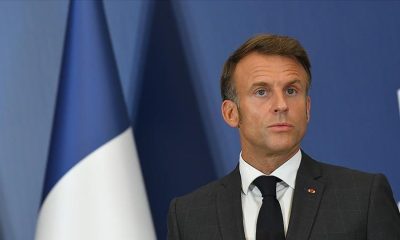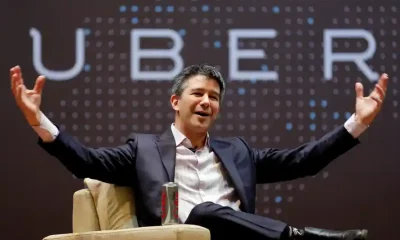Politics
Macron Names Centrist François Bayrou As French PM
Macron is half-way through his second term as president and Bayrou will be his fourth prime minister this year.
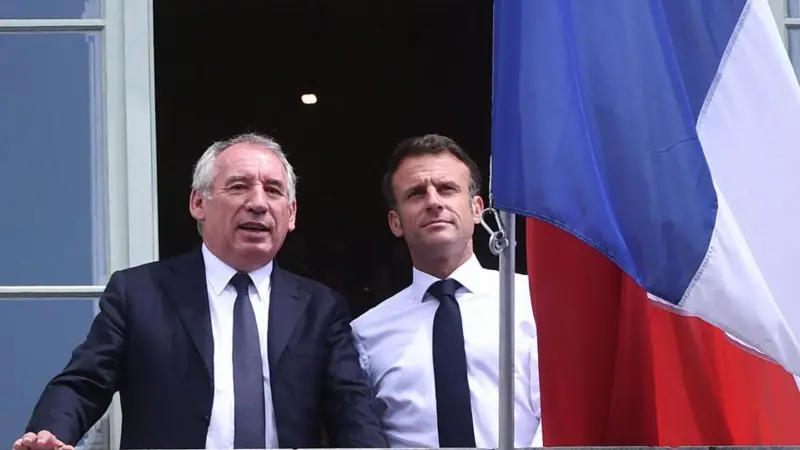
President Emmanuel Macron has named centrist leader François Bayrou as France’s next prime minister, in a bid to end months of political turmoil.
A Macron ally, Bayrou is a mayor from the southwest and leads the MoDem party. Ahead of the announcement, the two men spent almost two hours in talks described as tense by French media.
The president’s task is now to ensure Bayrou lasts longer than his predecessor. Ex-Brexit negotiator Michel Barnier lasted just three months and was ousted by MPs nine days ago.
Macron is half-way through his second term as president and Bayrou will be his fourth prime minister this year.
French politics has been deadlocked ever since Macron called snap parliamentary elections during the summer and an opinion poll for BFMTV on Thursday suggested 61% of French voters were worried by the political situation.
Far-left France Unbowed leader Manuel Bompard has complained of a “pathetic spectacle”.
President Macron has vowed to remain in office until his second term ends in 2027, despite Barnier’s downfall last week.
He cut short a trip to Poland on Thursday and had been expected to name his new prime minister on Thursday night, but postponed his announcement until Friday.
He then met Bayrou, 73, at the Elysée Palace and a final decision was made hours later.
Bayrou was set to move into the prime minister’s residence at Hôtel Matignon almost immediately, and a red carpet was rolled out for the transfer of power even before his name was confirmed.
His challenge will be in forming a government that will not be brought down the way his predecessor’s was in the National Assembly.
Macron has already held round-table talks with leaders from all the main political parties, bar the far-left France Unbowed (LFI) of Jean-Luc Mélenchon and far-right National Rally of Marine Le Pen.
The question will be whether parties from the centre left can be persuaded to join Bayrou’s government, or at least agree a pact so they do not oust him. Barnier lasted only three months in the job and LFI MPs have already indicated they would propose another vote of no confidence.
Barnier was voted out when Le Pen’s National Rally joined left-wing MPs in rejecting his plans for €60bn (£50bn) in tax rises and spending cuts. He was seeking to cut France’s budget deficit, which is set to hit 6.1% of economic output (GDP) this year.
Under the political system of France’s Fifth Republic, the president is elected for five years and then appoints a prime minister whose choice of cabinet is then appointed by the president.
Unusually, President Macron called snap elections for parliament over the summer after poor results in the EU elections in June. The outcome left France in political stalemate, with three large political blocs made up of the left, centre and far right.
Eventually he chose Barnier to form a minority government reliant on Marine Le Pen’s National Rally for its survival. Macron is now hoping to restore stability without depending on her party.
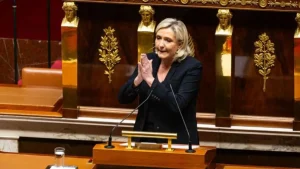
Marine Le Pen withdrew her support for the previous government, backing a left-sponsored vote of no confidence
Three centre-left parties – the Socialists, Greens and Communists – have broken ranks with the more radical left LFI and have taken part in talks on forming a new government.
However, they have made clear they want to see a leftist prime minister of their choice if they are going to join a broad-based government.
“I told you I wanted someone from the left and the Greens and I think Mr Bayrou isn’t one or the other,” Greens leader Marine Tondelier told French TV on Thursday, adding that she did not see how the centrist camp that lost parliamentary elections could hold the post of prime minister and maintain the same policies.
Carole Delga, a Socialist leader from southern France, said the French people had become exasperated by the situation, which she likened to a bad movie.
Sébastien Chenu, a National Rally MP, said for his party it was less about who Macron picked than the “political line” he chose. If Bayrou wanted to tackle immigration and the cost of living crisis then he would “find an ally in us”.
Relations between the centre left and the radical LFI of Jean-Luc Mélenchon appear to have broken down over the three parties’ decision to pursue talks with President Macron.
After the LFI leader called on his former allies to steer clear of a coalition deal, Olivier Faure of the Socialists told French TV that “the more Mélenchon shouts the less he’s heard”.
Meanwhile, Marine Le Pen has called for her party’s policies on the cost of living to be taken into account by the incoming government, by building a budget that “doesn’t cross each party’s red lines”.
Michel Barnier’s caretaker government has put forward a bill to enable the provisions of the 2024 budget to continue into next year. But a replacement budget for 2025 will have to be approved once the next government takes office.
Kenya Insights allows guest blogging, if you want to be published on Kenya’s most authoritative and accurate blog, have an expose, news TIPS, story angles, human interest stories, drop us an email on [email protected] or via Telegram
-

 News1 week ago
News1 week agoTHE FIRM IN THE DOCK: How Kaplan and Stratton Became the Most Scrutinised Law Firm in Kenya
-

 Investigations2 weeks ago
Investigations2 weeks agoMulti-Million Dollar Fraud: Three Kenyans Face US Extradition in Massive Cybercrime Conspiracy
-

 Economy1 week ago
Economy1 week agoIran Demands Arrest, Prosecution Of Kenya’s Cup of Joe Director Director Over Sh2.6 Billion Tea Fraud
-

 Business2 weeks ago
Business2 weeks agoA Farm in Kenya’s Rift Valley Ignites a National Reckoning With Israeli Investment
-

 Africa2 weeks ago
Africa2 weeks agoFBI Investigates Congresswoman Ilhan Omar’s Husband’s Sh3.8 Billion Businesses in Kenya, Somalia and Dubai
-

 Grapevine6 days ago
Grapevine6 days agoA UN Director Based in Nairobi Was Deep in an Intimate Friendship With Epstein — He Even Sent Her a Sex Toy
-

 News2 weeks ago
News2 weeks agoTragedy As City Hall Hands Corrupt Ghanaian Firm Multimillion Garbage Collection Tender
-

 Arts & Culture2 weeks ago
Arts & Culture2 weeks agoWhen Lent and Ramadan Meet: Christians and Muslims Start Their Fasting Season Together

